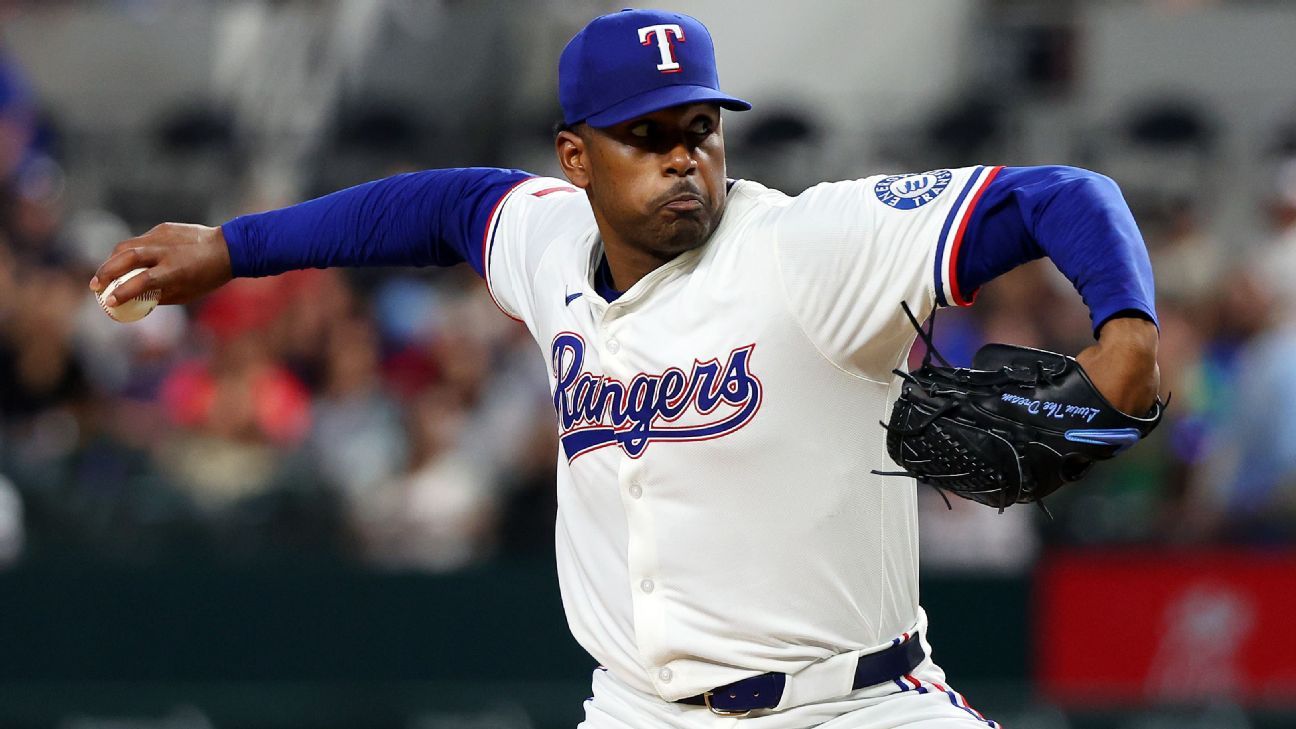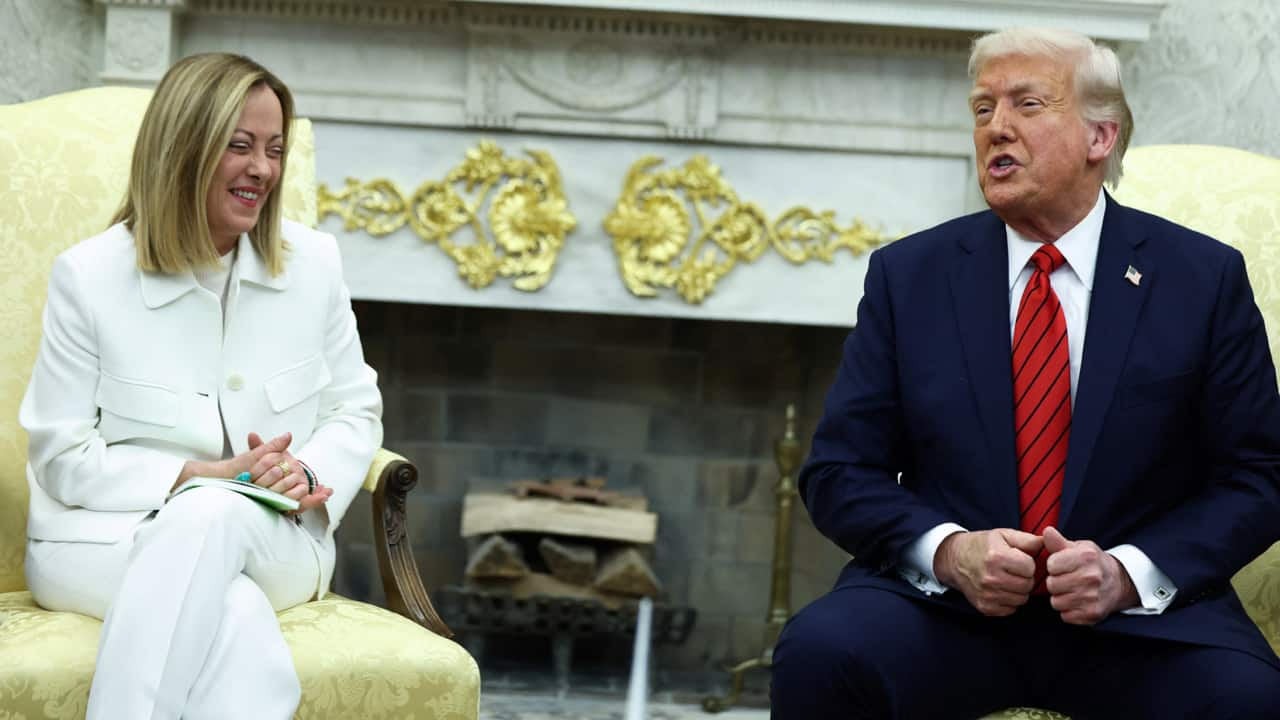Morrisons struggles in clutches of the US buyout barons By ALEX BRUMMER Updated: 17:50 EDT, 29 March 2025 e-mail View comments Bradford-based supermarket chain Morrisons has earned a special place in the affections of customers. Its reputation for selling produce from farm to fork, and from fisheries to the in-store fishmonger sets it apart from grocery rivals. So the group's decision this week to shutter 52 cafes, 13 florists, 35 meat counters, 35 fish displays, four pharmacies and all 18 market kitchens – which offer freshly made meals – is a source of great consternation.
When Morrisons was acquired by American private equity kingpins Clayton, Dubilier & Rice (CD&R) in a debt-fuelled £7 billion deal in October 2021 there were vaunting ambitions for the future. Former Tesco boss Sir Terry Leahy, who helped engineer the deal and is now Morrisons chairman, saw a chance for tremendous expansion. His vision was to follow in the steps of Tesco by bringing Morrisons' fresh, UK produce to ever more Britons with more stores on the nation's forecourts, on busy high streets and in the suburbs.

Despite Leahy's vision it hasn't worked out like that. Private equity ownership, in the post-Covid era of elevated interest rates , has become an anvil around the neck of targeted companies. Nowhere has it been more pronounced than in food retail, where net profit margins (profit after tax) can be less than 2 per cent and competition is fierce.
Fight back: Lebanese-born Morrisons boss Rami Baitieh took over from David Potts in 2023 In Britain lesser players must compete with Tesco, the biggest beast with enormous buying power, as well as upstart German no-frills retailers Aldi and Lidl. Under CD&R Morrison is doing its best to avoid the worst of private equity ownership of retail. The brand destruction, value erosion and High Street desolation wreaked by the buyout barons is everywhere to be seen in shuttered Debenhams stores, the implosion at Phones4U and ruins of Toys R Us.
Among the supermarkets Asda, under the ownership of TDR Capital, has seen its market share collapse under the weight of its debt and misjudged management. This month Asda cut bonuses for managers and noted a pre-tax loss of £111.7 million in the first nine months of 2024 as its profit was dwarfed by the £440 million cost of servicing its debt.
RELATED ARTICLES Previous 1 Next Morrisons says it needs to save £1bn to deal with rising...
Is it a good time to buy shares in Tesco, Sainsbury's and...
Share this article Share HOW THIS IS MONEY CAN HELP How to choose the best (and cheapest) stocks and shares Isa and the right DIY investing account Morrisons insists that its recent café and counter closures are nothing to do with pressure on its balance sheet from private equity ownership. It argues that in-store cafes have became unfashionable after the pandemic with younger shoppers looking for a casual Pret a Manger-style eating experience. It notes that its stock market-listed rival Sainsbury's recently closed its in-house cafes with the loss of 3,000 jobs.
Among the biggest fears when CD&R bought Morrisons was that its distinctive home-grown supply chain would be axed to raise cash and lower debt burdens. So far that hasn't happened. Indeed, last year it opened a £12.
8 million fish freezing centre in Cornwall, described as 'the largest of its kind in the UK' as it builds its reach as a food wholesaler. Read More RUTH SUNDERLAND: Ten reasons why we mustn't let Morrisons fall to the pandemic predators As Morrisons seeks to reduce debt it has done some financial engineering. The biggest transaction was the sale of 337 forecourts for £2.
5 billion to Motor Fuel Group, which runs many oil company-branded petrol stations. It also executed a sale and leaseback deal on its warehouse portfolio, raising £370 million. So far it has shielded 80 per cent of its stores from sale and leaseback, sustaining its asset backing.
As a result of the disposals and deals so far the debt pile has been cut back to a more manageable £3.7 billion. In contrast to Asda, like-for-like sales at Morrisons rose 4 per cent last year, turnover climbed to £15.
3 billion, underlying profits reached £835 million and there was a positive cashflow of £401 million. Growth, under the lively leadership of Lebanese-born boss Rami Baitieh, is being fuelled by its role as a supplier through its online channels which include Ocado and Amazon. The next big question for Morrison and its stakeholders is when and how it will escape the clutches of CD&R before more bits are chopped off or reloaded with debt.
Buyout barons have a bad case of indigestion, sitting on £2.3 trillion of assets globally, while the appetite of public markets for assets that have been through the private equity wringer is limited. The belief was that Donald Trump's election would unleash a bull market, allowing private equity beasts to offload assets on the public markets.
But his tariff wars have put hopes of a pipeline of public offerings on hold. CD&R is said to be in no rush to sell Morrisons. But ideally it would do so before the culture and underpinnings of a distinctly British enterprise are further weakened.
DIY INVESTING PLATFORMS AJ Bell AJ Bell Easy investing and ready-made portfolios Learn More Learn More Hargreaves Lansdown Hargreaves Lansdown Free fund dealing and investment ideas Learn More Learn More interactive investor interactive investor Flat-fee investing from £4.99 per month Learn More Learn More Saxo Saxo Get £200 back in trading fees Learn More Learn More Trading 212 Trading 212 Free dealing and no account fee Learn More Learn More Affiliate links: If you take out a product This is Money may earn a commission. These deals are chosen by our editorial team, as we think they are worth highlighting.
This does not affect our editorial independence. Compare the best investing account for you Share or comment on this article: Morrisons struggles in clutches of the US buyout barons e-mail Add comment Some links in this article may be affiliate links. If you click on them we may earn a small commission.
That helps us fund This Is Money, and keep it free to use. We do not write articles to promote products. We do not allow any commercial relationship to affect our editorial independence.
Comments 0 Share what you think No comments have so far been submitted. Why not be the first to send us your thoughts, or debate this issue live on our message boards. Add your comment Enter your comment By posting your comment you agree to our house rules .
Submit Comment Clear Close Do you want to automatically post your MailOnline comments to your Facebook Timeline? Your comment will be posted to MailOnline as usual. No Yes Close Do you want to automatically post your MailOnline comments to your Facebook Timeline? Your comment will be posted to MailOnline as usual We will automatically post your comment and a link to the news story to your Facebook timeline at the same time it is posted on MailOnline. To do this we will link your MailOnline account with your Facebook account.
We’ll ask you to confirm this for your first post to Facebook. You can choose on each post whether you would like it to be posted to Facebook. Your details from Facebook will be used to provide you with tailored content, marketing and ads in line with our Privacy Policy .
.
Business

Morrisons struggles in clutches of the US buyout barons

Private equity ownership, in the post-Covid era of elevated interest rates, has become an anvil around the neck of targeted companies.















